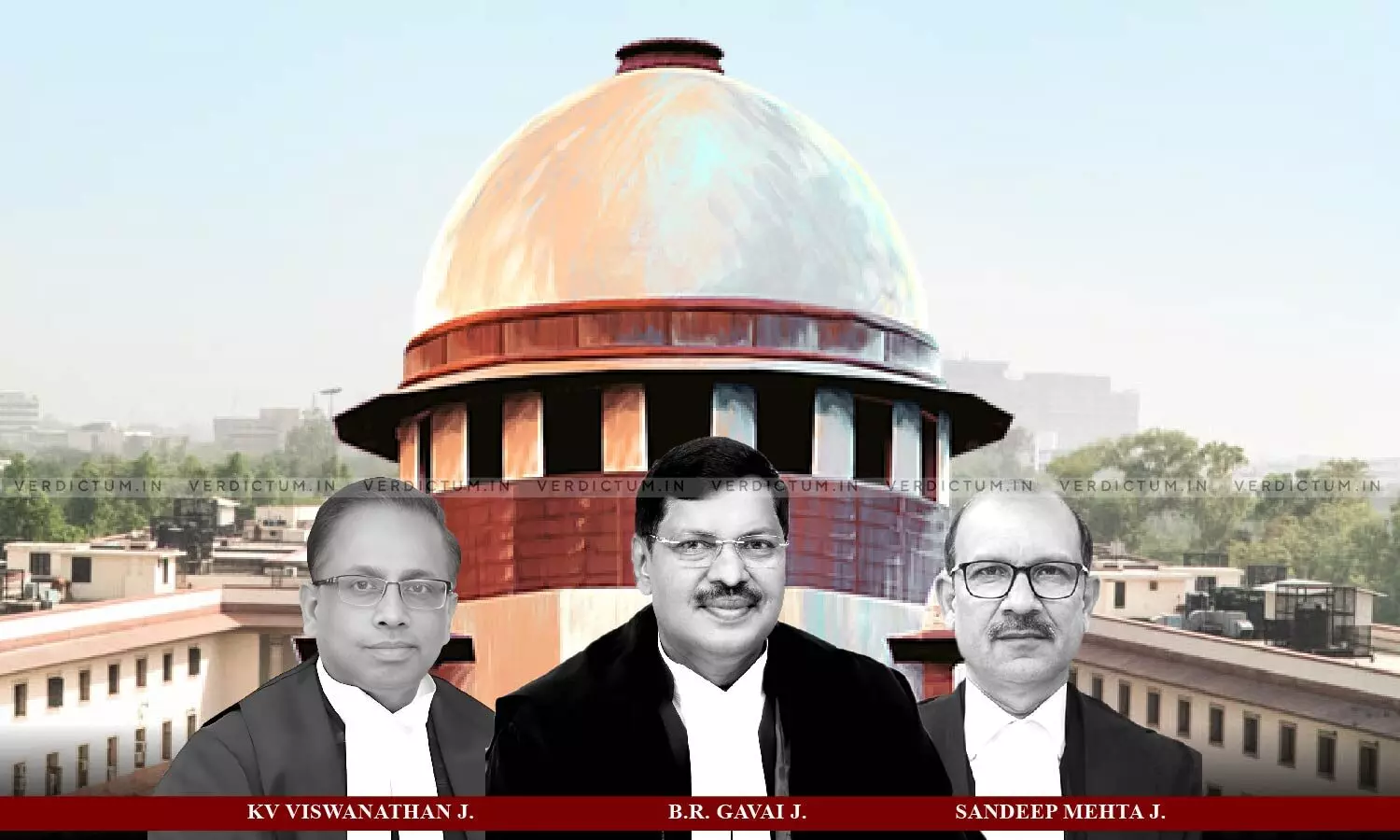
'How Much Is Too Much Or Too Little?': SC Lists Relevant Factors For Determining Minimum Sentence (Without Remission) To Be Imposed While Commuting Death Penalty
 |
|The Supreme Court, in a judgment delivered recently, has listed relevant factors for determining minimum sentence (without remission) to be imposed while commuting death sentence.
The Court noted that the following are the factors: (a) the number of deceased who are victims of that crime and their age and gender; (b) the nature of injuries including sexual assault if any; (c) the motive for which the offence was committed; (d) whether the offence was committed when the convict was on bail in another case; (e) the premeditated nature of the offence; (f) the relationship between the offender and the victim; (g) the abuse of trust if any; (h) the criminal antecedents; and whether the convict, if released, would be a menace to the society.
Further (1) age of the convict; (2) the probability of reformation of convict; (3) the convict not being a professional killer; (4) the socioeconomic condition of the accused; (5) the composition of the family of the accused and (6) conduct expressing remorse (7) conduct of the convict in jail; (8) the period already undergone, can also be considered.
It has been clarified that these factors are not meant to be exhaustive but illustrative and each case would depend on the facts and circumstances therein.
The Bench of Justice BR Gavai, Justice KV Viswanathan and Justice Sandeep Mehta observed that, "How much is too much and how much is too little? This is the difficult area we have tried to address here. As rightly observed, there can be no straitjacket formulae. Pegging the point up to which remission powers cannot be invoked is an exercise that has to be carefully undertaken and the discretion should be exercised on reasonable grounds."
In furtherance of the same, it was said that, "since it is a matter concerning the liberty of the individual, courts should also guard against any disproportion in the imposition, on the higher side too. A delicate balance has to be struck. While undue leniency, which will affect the public confidence and the efficacy of the legal system, should not be shown, at the same time, since a good part of the convict’s life with freedom is being sliced away (except in cases where the Court decides to impose imprisonment till rest of the full life), in view of his incarceration, care should be taken that the period fixed is also not harsh and excessive. While by the very nature of the task mathematical exactitude is an impossibility, that will not deter the Court from imposing a period of sentence which will constitute “a just dessert” for the convict."
Counsel Renjith B Marar appeared for the appellant, while Senior Counsel Jayanth Muth Raj appeared for the respondents.
The appeal stemmed from a trial where the appellant was found guilty of murdering four individuals after breaking into their house. The Trial Court sentenced him to death, which was later reduced to life imprisonment by the High Court.
The incident occurred when the accused, allegedly aggrieved by a past relationship with one of the victims, trespassed into their house armed with knives and an iron rod, resulting in the deaths of the victims. The prosecution relied on circumstantial evidence, with the accused failing to provide a convincing account of events.
The Apex Court observed that, "the fundamental underpinning is the principle of proportionality. The aggravating and mitigating circumstances which the Court considers while deciding commutation of penalty from death to life imprisonment, have a large bearing in deciding the number of years of compulsory imprisonment without remission, too. As a judicially trained mind pores and ponders over the aggravating and mitigating circumstances and in cases where they decide to commute the death penalty they would by then have a reasonable idea as to what would be the appropriate period of sentence to be imposed".
Subsequently, the Supreme Court upheld the order of conviction under Sections 302, 449 and 309 of the IPC. They also did not interfere sentence imposed on the accused for the offence under Section 449 and Section 309 of IPC.
Owing to the mitigating factors, the Apex Court modified the sentence under Section 302 imposed by the High Court from a period of 30 years imprisonment without remission to of a period of 25 years imprisonment without remission, including the period already undergone.
Appearances:
Appellant: Counsel Renjith B Marar
Respondents: Senior Counsel Jayanth Muth Raj
Cause Title: Navas @ Mulanvas vs State of Kerala
Click here read/download the Judgment